 | TODAY IN SCIENCE HISTORY NEWSLETTER - 23 FEBRUARY |
| Feature for Today |
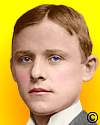 On 23 Feb of a certain year (see quiz below), Charles M. Hall within a year of graduating from college finally accomplished the extraction of aluminium from its ore. It had been a hard-sought discovery which shortly made the price of aluminium metal drop from an expensive luxury item to commonplace. On 23 Feb of a certain year (see quiz below), Charles M. Hall within a year of graduating from college finally accomplished the extraction of aluminium from its ore. It had been a hard-sought discovery which shortly made the price of aluminium metal drop from an expensive luxury item to commonplace.A remarkable achievement in itself - since the search for an economical method had stymied other chemists before him - but even more remarkable for the work of such a young chemist. Although the metal is so familiar to us now, you may know little of its facinating history, about which you can read more here. |
| Book of the Day | |
| |
| Quotations for Today | |
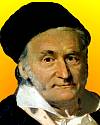 | "You know that I write slowly. This is chiefly because I am never satisfied until I have said as much as possible in a few words, and writing briefly takes far more time than writing at length." |
 | "Since my first discussions of ecological problems with Professor John Day around 1950 and since reading Konrad Lorenz's King Solomon's Ring, I have become increasingly interested in the study of animals for what they might teach us about man, and the study of man as an animal. I have become increasingly disenchanted with what the thinkers of the so-called Age of Enlightenment tell us about the nature of man, and with what the formal religions and doctrinaire political theorists tell us about the same subject." |
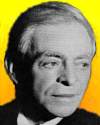 | "The word, Vitamine, served as a catchword which meant something even to the uninitiated, and it was not by mere accident that just at that time, research developed so markedly in this direction. Our view as to the fortunate choice of this name is strengthened, on the one hand, because it has become popular (and a badly chosen catchword, like a folksong without feeling, can never become popular), and on the other, because of the untiring efforts of other workers to introduce a varied nomenclature, for example, 'accessory food factors, food hormones, water-soluble B and fat-soluble A, nutramine, and auximone' (for plants). Some of these designations are certainly not better, while others are much worse than Vitamine." |
| QUIZ | |
| Before you look at today's web page, see if you can answer some of these questions about the events that happened on this day. Some of the names are very familiar. Others will likely stump you. Tickle your curiosity with these questions, then check your answers on today's web page. | |
| Births | |
 |  Allan MacLeod Cormack, born 23 Feb 1924, was a South African-born American physicist who formulated the mathematical algorithms that made possible the development of a powerful new diagnostic technique, the cross-sectional X-ray imaging process known CAT scanning. Allan MacLeod Cormack, born 23 Feb 1924, was a South African-born American physicist who formulated the mathematical algorithms that made possible the development of a powerful new diagnostic technique, the cross-sectional X-ray imaging process known CAT scanning. |
 |  Casimir Funk, born 23 Feb 1884, was a Polish-American biochemist who pursued the idea that diseases such as beriberi, scurvy, rickets and pellagra were caused by lack of vital substances in the diet. He coined the name for such factors. Casimir Funk, born 23 Feb 1884, was a Polish-American biochemist who pursued the idea that diseases such as beriberi, scurvy, rickets and pellagra were caused by lack of vital substances in the diet. He coined the name for such factors. |
| Deaths | |
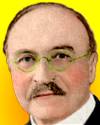 |  Leo Hendrik Baekeland (1863-1944) was an American industrial chemist who helped found the modern plastics industry through his invention of the first thermosetting plastic (a plastic that does not soften when heated). Leo Hendrik Baekeland (1863-1944) was an American industrial chemist who helped found the modern plastics industry through his invention of the first thermosetting plastic (a plastic that does not soften when heated).  What name did he give to the plastic he invented? What name did he give to the plastic he invented? |
| Events | |
 |  On 23 Feb of a certain year, Charles M. Hall, a young U.S. chemist, completed his electrolytic process for the separation of aluminum from its ore, a mere eight months since he graduated from college. He dissolved the alumina ore in a bath of cryolyte (a mineral containing flourine, sodium and aluminum) and passed electric current through the solution. He patented the process, which was the first to become an inexpensive, commercial application. On 23 Feb of a certain year, Charles M. Hall, a young U.S. chemist, completed his electrolytic process for the separation of aluminum from its ore, a mere eight months since he graduated from college. He dissolved the alumina ore in a bath of cryolyte (a mineral containing flourine, sodium and aluminum) and passed electric current through the solution. He patented the process, which was the first to become an inexpensive, commercial application.  In which decade was this discovery made? In which decade was this discovery made? |
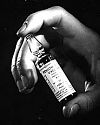 |  On 23 Feb 1954, the first mass inoculation of children with the Salk vaccine began in Pittsburgh, Pennsylvania. On 23 Feb 1954, the first mass inoculation of children with the Salk vaccine began in Pittsburgh, Pennsylvania.  What disease was this inoculation intended to combat? What disease was this inoculation intended to combat? |
| Answers |
When you have your answers ready to all the questions above, you'll find all the information to check them, and more, on the February 23 web page of Today in Science History. Or, try this link first for just the brief answers. Fast answers for the previous newsletter for February 22: Heineich Hertz; heat or cold is produced at the junction, depending on the direction of current flow; clinical fever thermometer - shorter for portability and quicker to respond in use; the decade including the year 1828; Steve Fossett. |
| Feedback |
 If you enjoy this newsletter, the website, or wish to offer encouragement or ideas, please send feedback by using your mail reader Reply button. If you enjoy this newsletter, the website, or wish to offer encouragement or ideas, please send feedback by using your mail reader Reply button. |
--
If you do not want to receive any more newsletters, this link
To update your preferences and to unsubscribe visit this link
If you do not want to receive any more newsletters, this link
To update your preferences and to unsubscribe visit this link
! !



Δεν υπάρχουν σχόλια:
Δημοσίευση σχολίου